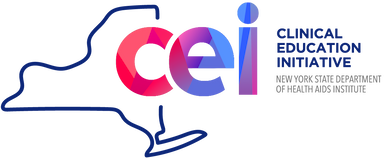Important Notice Regarding CEI Credits
Effective February 1, 2026, CEI will offer Continuing Medical Education (CME) credits only.
Participants who enrolled in e-courses or attended live trainings/webinars that offered CNE, CNERx, or CPE prior to this date must complete the required evaluation and claim their credits by January 30, 2026.
CNE, CNERx, and CPE Certificates claimed for trainings and e-courses prior to January 30, 2026, are saved in your MyCEI account and can be accessed at any time.


